Addiction Counselling
Ocean Recovery is proud to offer expert addiction counselling, drug and alcohol rehab and detox services, all under one roof. Enquire Now
By John Gillen - Last Updated: December 22, 2023
Clinically Reviewed by Dr Robert Lutaaya. All information on this page has been reviewed and verified by a certified addiction professional.

Breaking an addiction can be tricky to do alone. Admitting that you need help can be even more challenging. At Ocean Recovery, we’ve helped hundreds of people access addiction counselling, giving them the care and support to live a life free from addiction.
Many people are reluctant to admit they have a drug or alcohol addiction as they feel embarrassed and ashamed. Some hope that sheer willpower will be enough to conquer their habits. You don’t have to go it alone. Addiction counselling can help you beat your addictions for good.
At Ocean Recovery, we work with specialist addiction counsellors who will get the roots and causes of your problems. They will help you understand the consequences of your addictions and how to break the cycle. Counselling focuses heavily on mental health issues. We offer a range of addiction treatments and rehab programmes for all types of addictions to assist in your long-term recovery.
Why not contact us to discuss a treatment plan?
- How Long Does Addiction Counselling Take?
- What Therapy Options Are Available As Part Of Addiction Counselling?
- How Beneficial Is Addiction Counselling?
- Residential Or Outpatient Addiction Counselling?
- Why Choose Ocean Recovery For Addiction Counselling?
- Our Rehab Facilities
- Images of Our Facilities
- Facilities at Ocean Recovery
- Give Us A Call
- Areas We Cover
How Long Does Addiction Counselling Take?
However long you need. We usually offer a weekly session lasting up to 10 weeks. If you need more, we can extend it.
You can access group therapy, support groups, and aftercare to aid your addiction recovery when you’ve finished your counselling.
Contact Us
94 Queen's Promenade, Blackpool, FY2 9NS, Blackpool, FY2 9NS
Landline: 01253 847 553
Email: info@oceanrecoverycentre.com
Start your Recovery - Call us nowWhat Therapy Options Are Available As Part Of Addiction Counselling?
Ocean Recovery offers different types of addiction counselling through individual and group therapy. You’ll likely be offered a combination of treatment services, depending on the type and severity of your addiction. Most importantly, we want you to enter counselling feeling comfortable and confident.
If you’re keen to discuss the services listed below in more detail, contact our friendly team, who will guide you through your options.
Counselling is an essential part of the rehabilitation process and a long-term investment in your wellbeing. We always recommend that patients complete a treatment programme to prevent future relapse.
1. Cognitive Behavioral Therapy
Cognitive behavioural therapy (CBT) looks at why people think, feel and act. This type of talking therapy helps tackle behavioural or emotional issues surrounding addictive behaviour.
2. Dialectical Behaviour Therapy (DBT)
DBT sounds complicated, but the idea is straightforward. Counselling combines mindfulness and gives you techniques to tolerate stress and regulate emotions.
3. Group Counselling
Group therapy is a fantastic way to connect and receive support from others recovering from addiction. A qualified counsellor leads and gently guides the sessions.
4. Music & Art Therapy
Music and Art therapy is a therapeutic and relaxing way to treat addictions. It’s a valuable communication tool, enabling people to show their emotions through sound and creativity. Patients express themselves through music and art, reducing anxiety, depression and stress.
5. Nutrition Awareness
Eating well is key to leading a healthy life. You’ll learn about the right foods to eat and supplements to take to help your body heal from addictive behaviour through nutrition therapy.
6. AA (Alcoholics Anonymous) & NA (Narcotics Anonymous)
These peer support groups are fantastic if you have a substance abuse issue or a recovering alcoholic.
AA and NA base their teachings on the 12 steps recovery programme, and you’ll be matched with a former addict to guide and support you.
7. Twelve Step Programmes
Ocean Recovery offers these programmes in-house or through a partner organisation. You’ll learn about the twelve steps every recovering addict has to take to live an addiction-free life.
8. EMDR
Eye Movement Desensitization and Reprocessing (EMDR) is a valuable therapy that aids with addiction recovery. It helps people recover from past traumas and focuses on memory and emotions.
9. Holistic Therapy
We offer a range of holistic therapies that focus on the mind and body, including acupuncture, yoga and guided meditations. Many people find meditation an effective counselling method, as it helps them focus and relax.
10. Family Therapy
The effects of addiction can cause upset and upheaval for families. At Ocean Recovery, we work with family members to help them heal, find a way past conflict and understand your recovery journey.
How Beneficial Is Addiction Counselling?
Counselling is an essential tool to help you stay free from drugs, alcohol, or other addiction. You may have completed an alcohol detox programme with us and experienced physical withdrawal symptoms. The next step is long-term addiction counselling to focus on any psychological factors you may face.
Addiction counselling focuses on relapse prevention, coping techniques, and managing mental health issues. Counselling teaches you to stay free from cravings, looking at your home life, social circle and potential triggers.
If you join group therapy and the other peer support groups listed above, you’ll benefit from the support of others. Learning about other people’s experiences and coping mechanisms can often inspire people to follow suit. Speaking in front of others is often therapeutic and creates a sense of relief that feelings have been released rather than bottled up. You can also access group therapy for sex addiction at Ocean Recovery.
Addiction can have a devastating impact on family members. Addiction counselling helps heal family damage caused by addiction, paving the way for a bright future for all.
Residential Or Outpatient Addiction Counselling?
Research has shown that people stand a much better chance of recovering from addictions if they complete a residential programme. Some people stay with us for a few weeks to combine an alcohol or drug detox programme with addiction counselling. Others will complete counselling at home as an outpatient, accessing support groups and visiting one of our centres for one-to-one therapy.
Our admissions team can advise you on the best treatment programme and run through our admissions process.
Why Choose Ocean Recovery For Addiction Counselling?
Ocean Recovery is proud to offer expert addiction counselling, drug and alcohol rehab and detox services, all under one roof.
Since we opened in 2014, we’ve provided life-changing addiction counselling to thousands of people, helping them beat the cycle of addiction. The combined experience of our specialist team of doctors, nurses, psychiatrists, therapists and counsellors means we can offer expert care to help you live addiction-free.
Contact us to find out more.
Our Rehab Facilities
At Ocean Recovery, we are extremely proud of our state-of-the-art facility. We provide residents with the most relaxing stay possible and they can enjoy our modern establishment.
Ocean Recovery Facilities include:
CQC Registered
FREE Transportation Included
Medically Assisted Detoxification
2 Executive, Sea View Double Ensuite Rooms
8 Double or Single Ensuite Rooms
3 Single Rooms with Dedicated Separate Bathroom
Comfortable Communal Lounge with Piano & Sky TV
Beautiful Modern Dining Lounge
External Courtyard and Outside Seating Area
12 Months FREE Aftercare
Regular Contact with Loved Ones Encouraged
Large Multi-Purpose Group Activity Room with Superb Sea Views
Images of Our Facilities

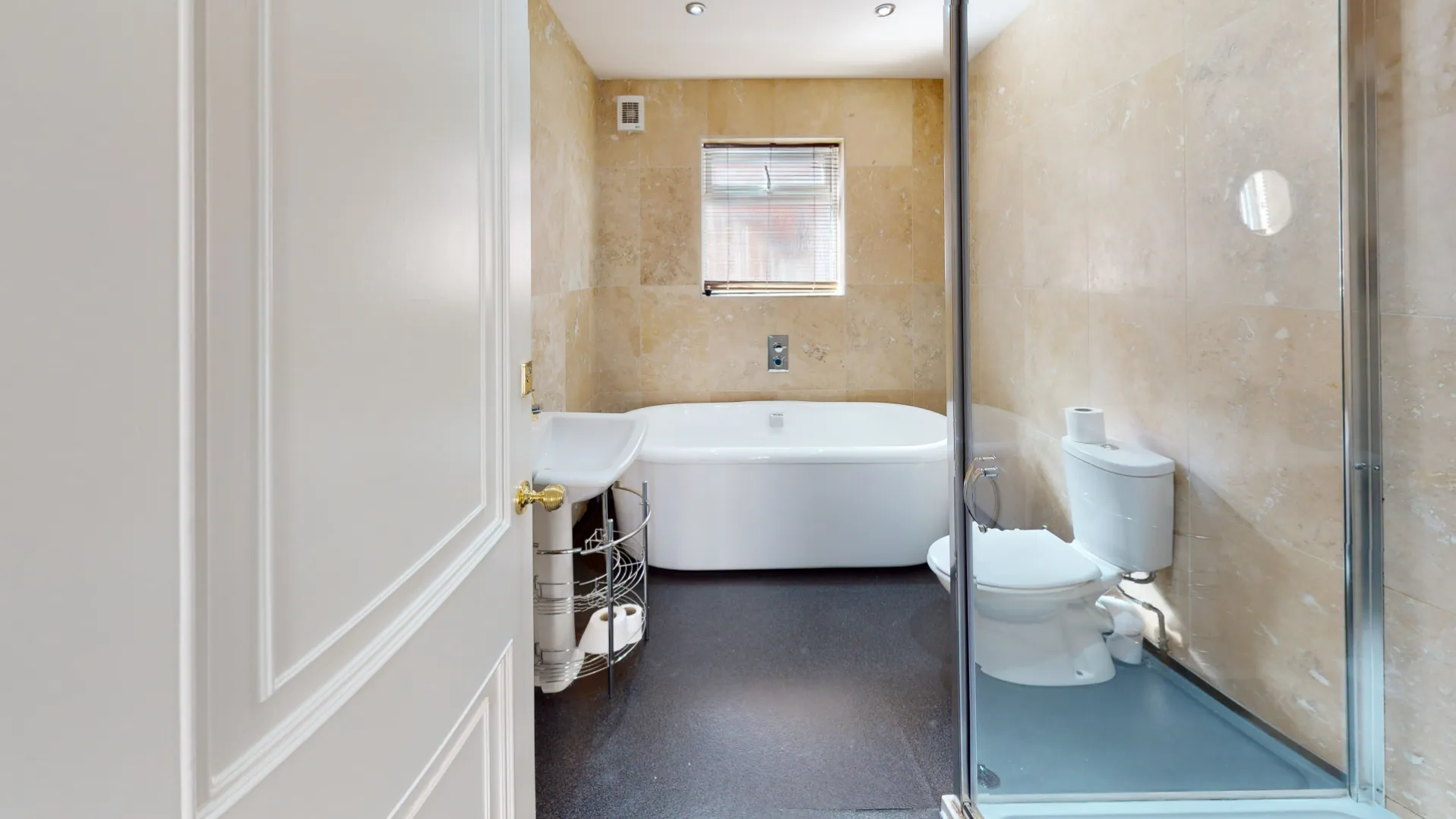
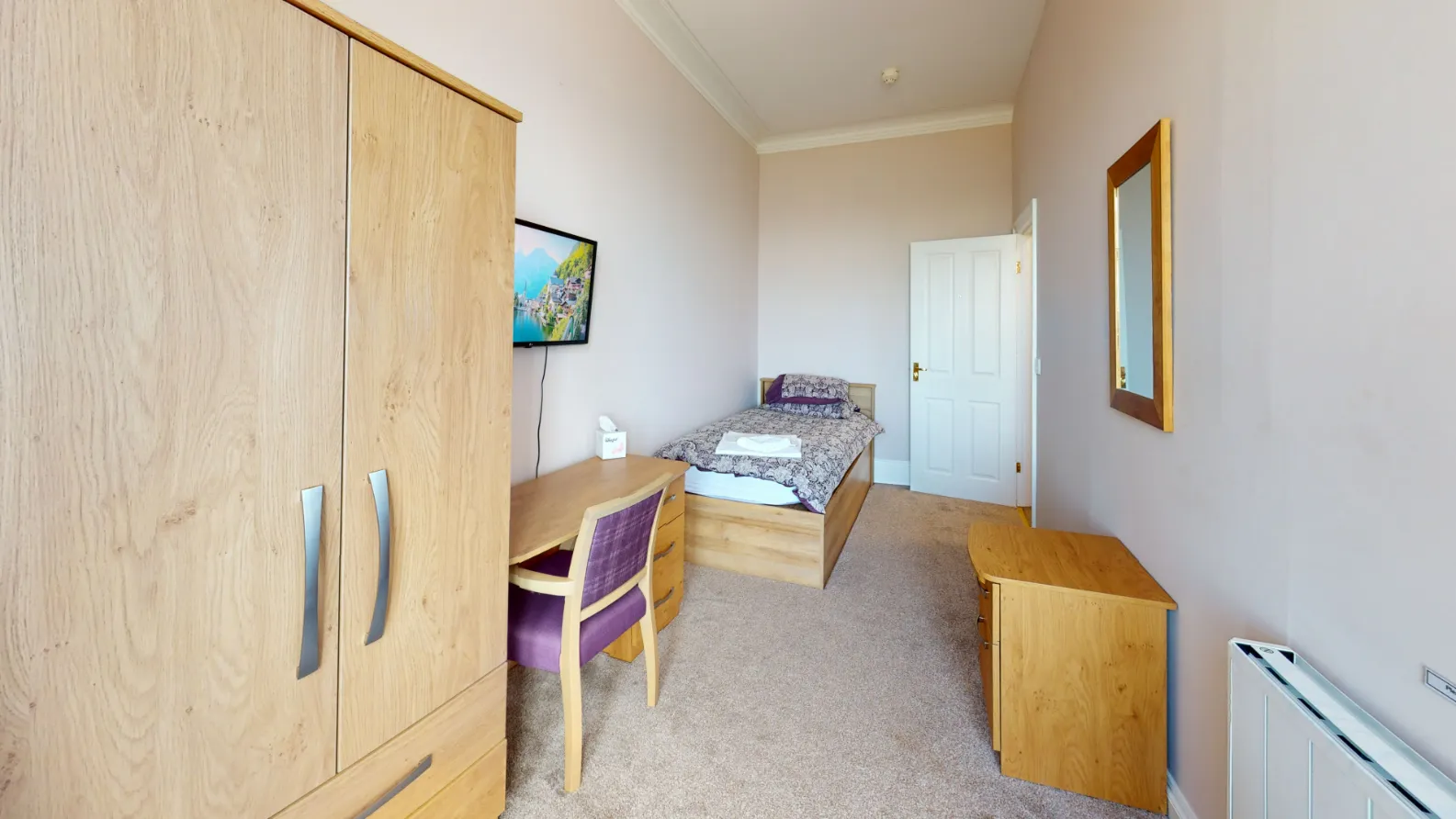
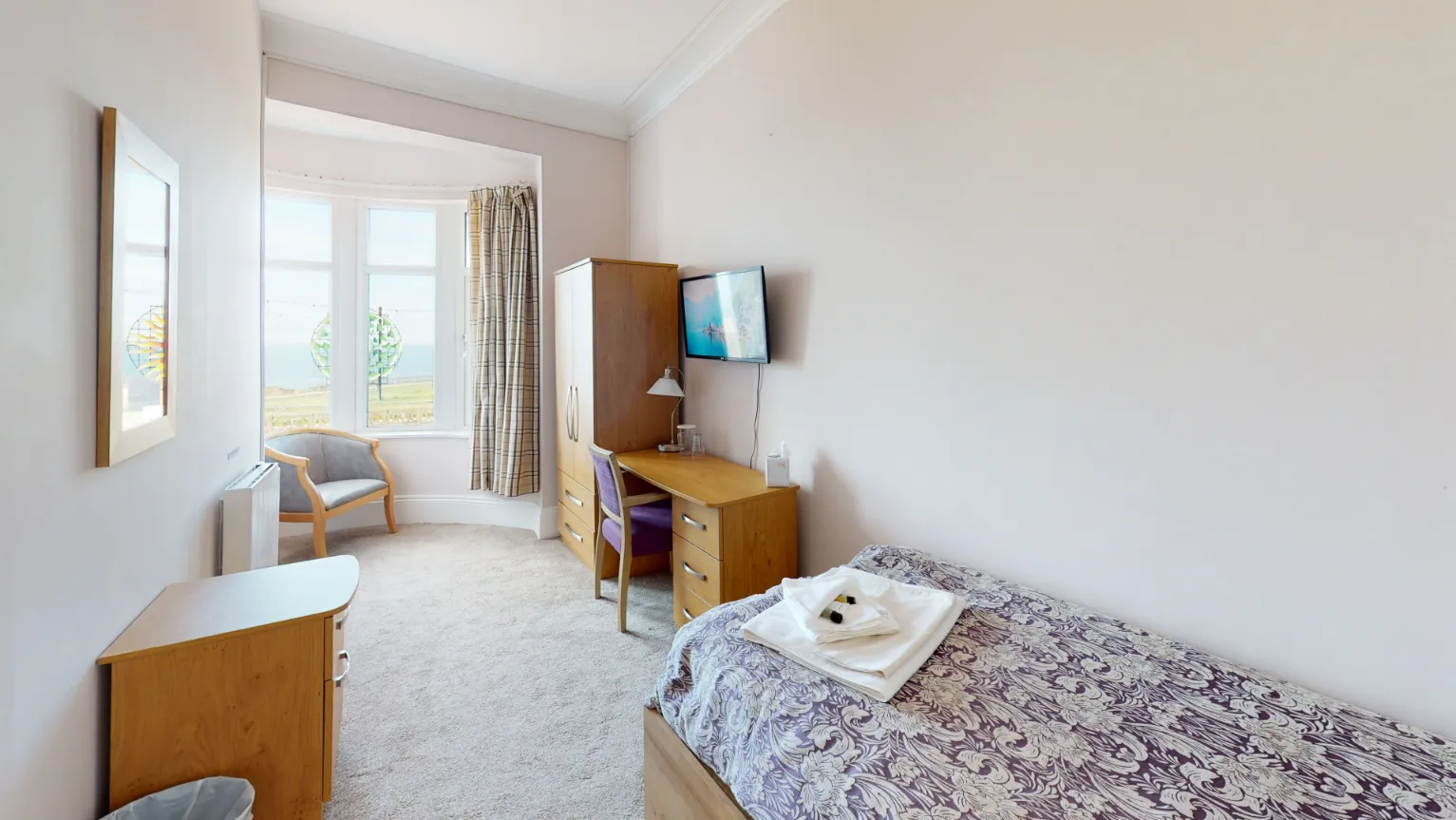
Facilities at Ocean Recovery




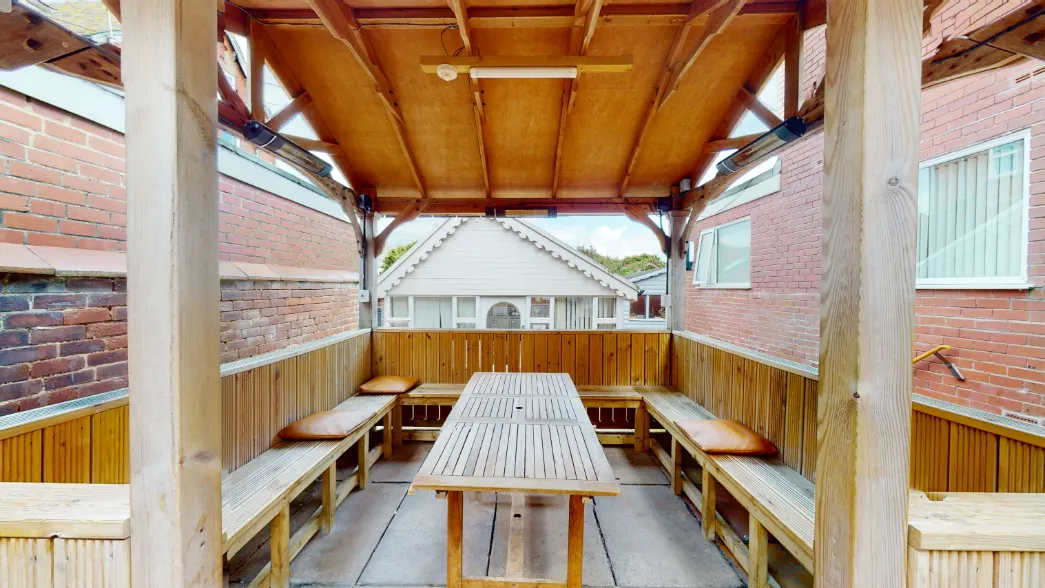
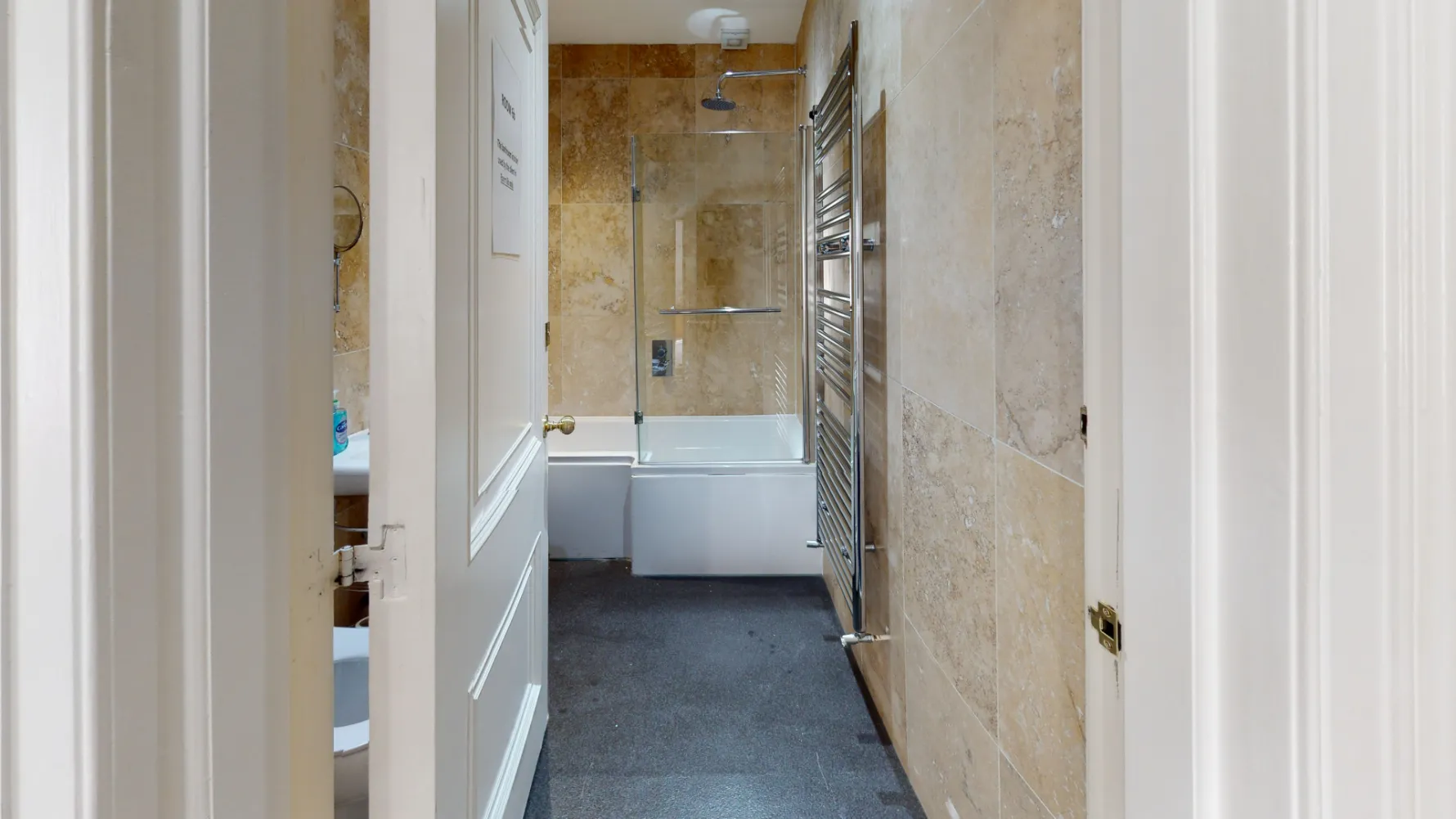
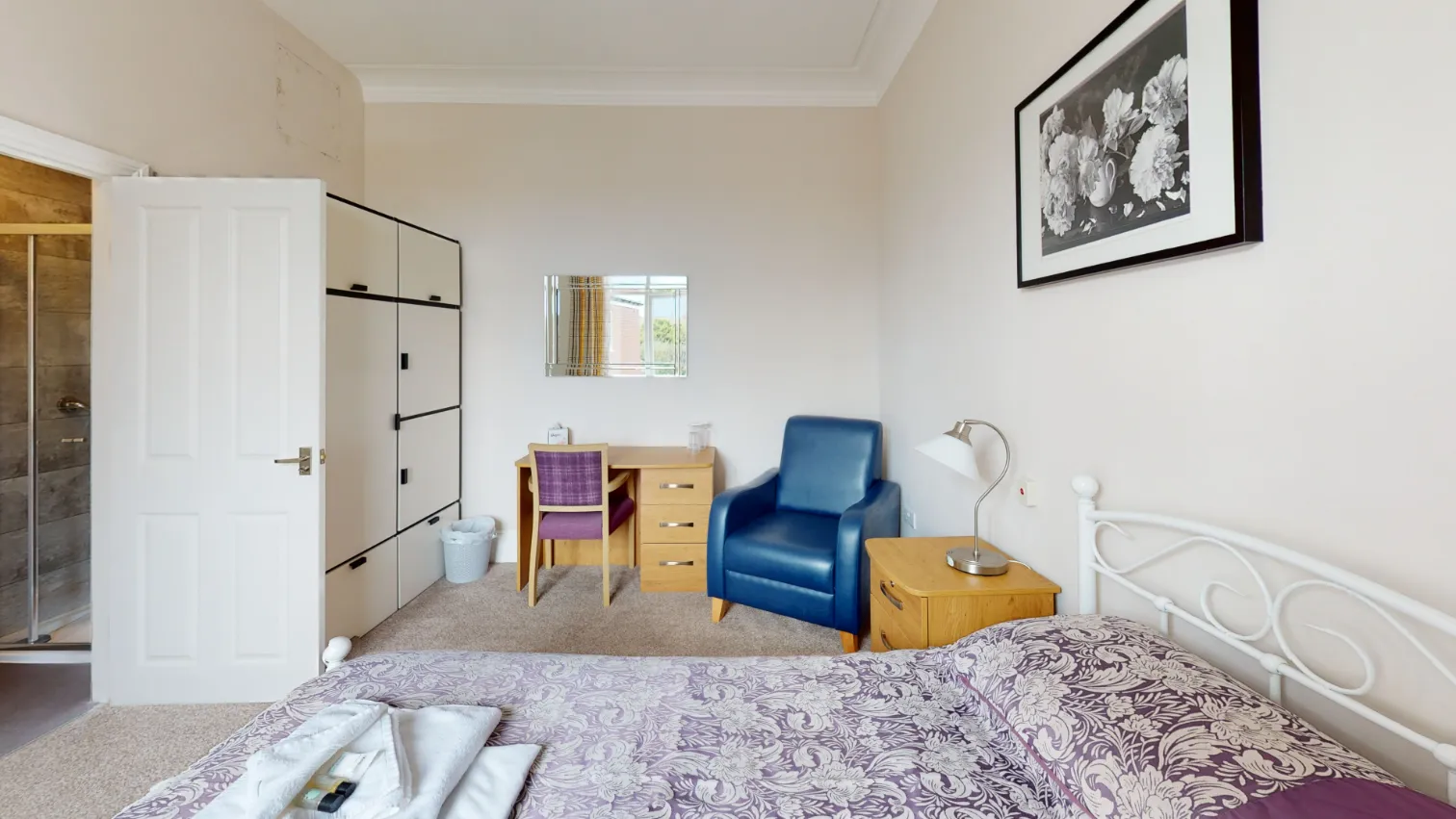
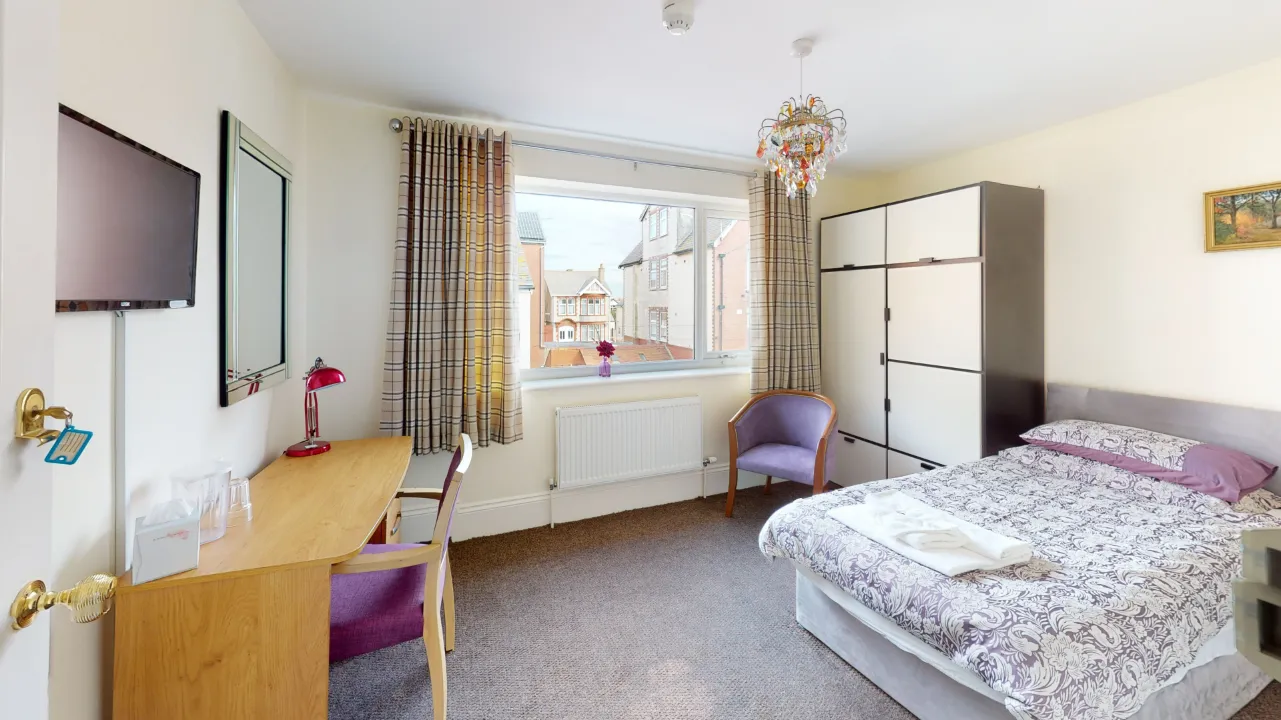
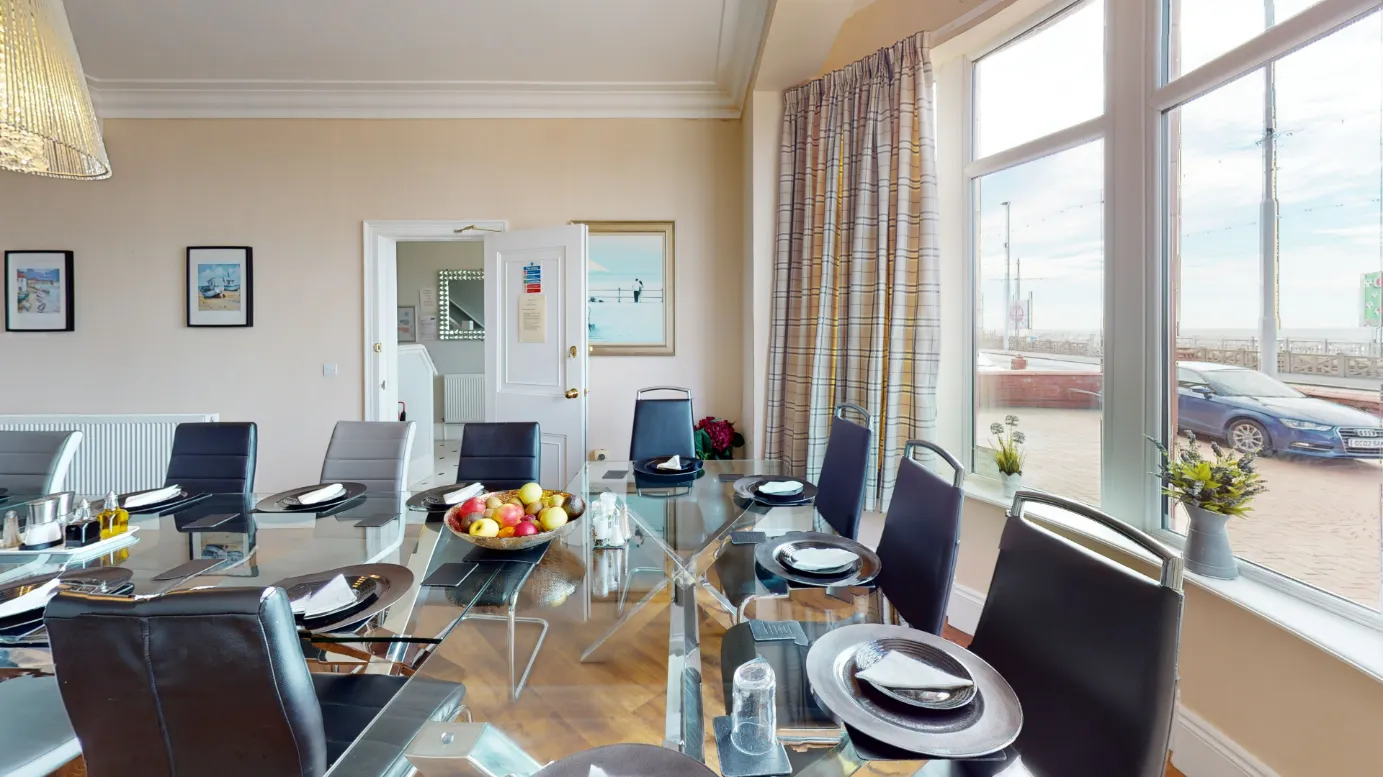
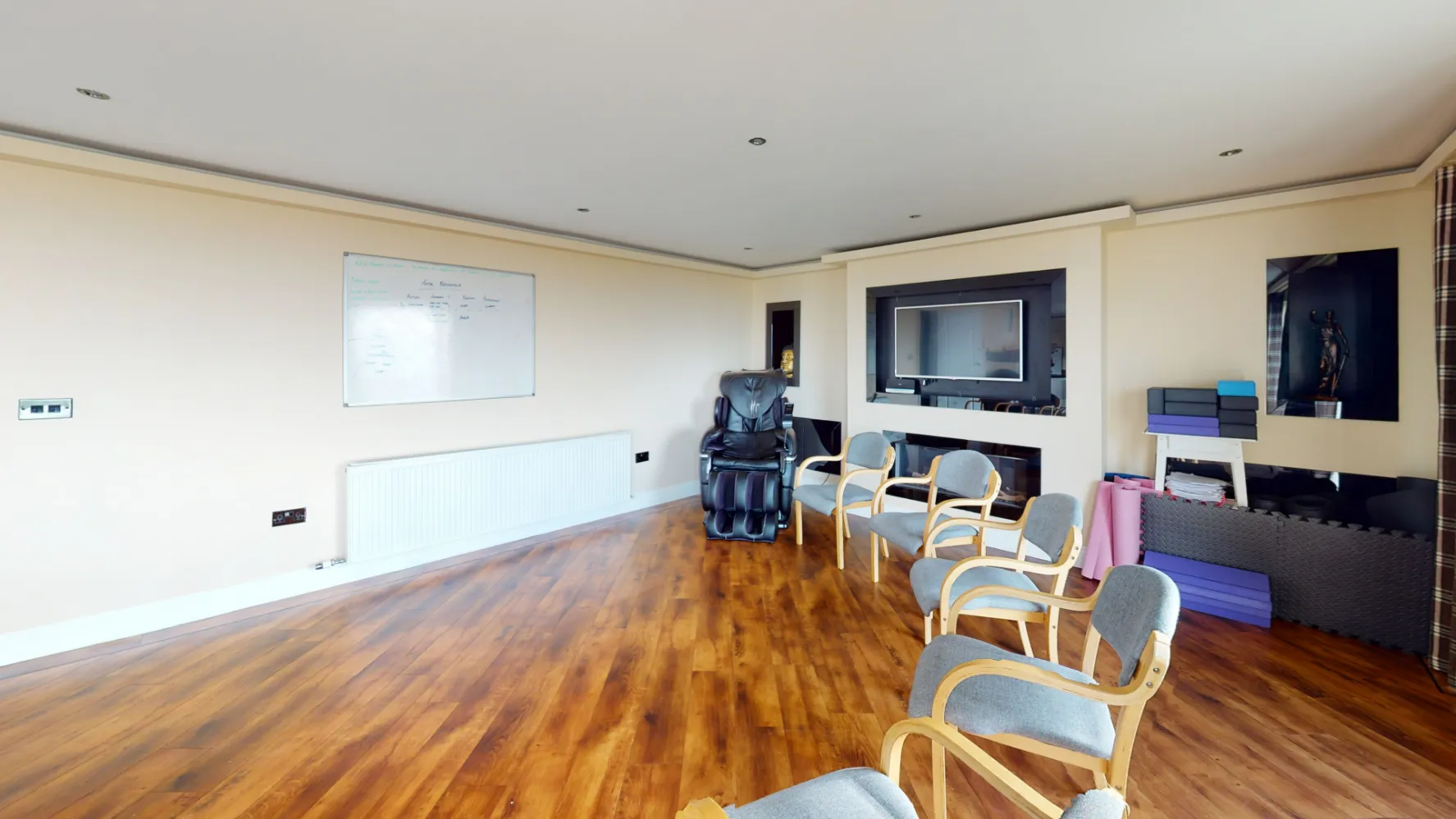
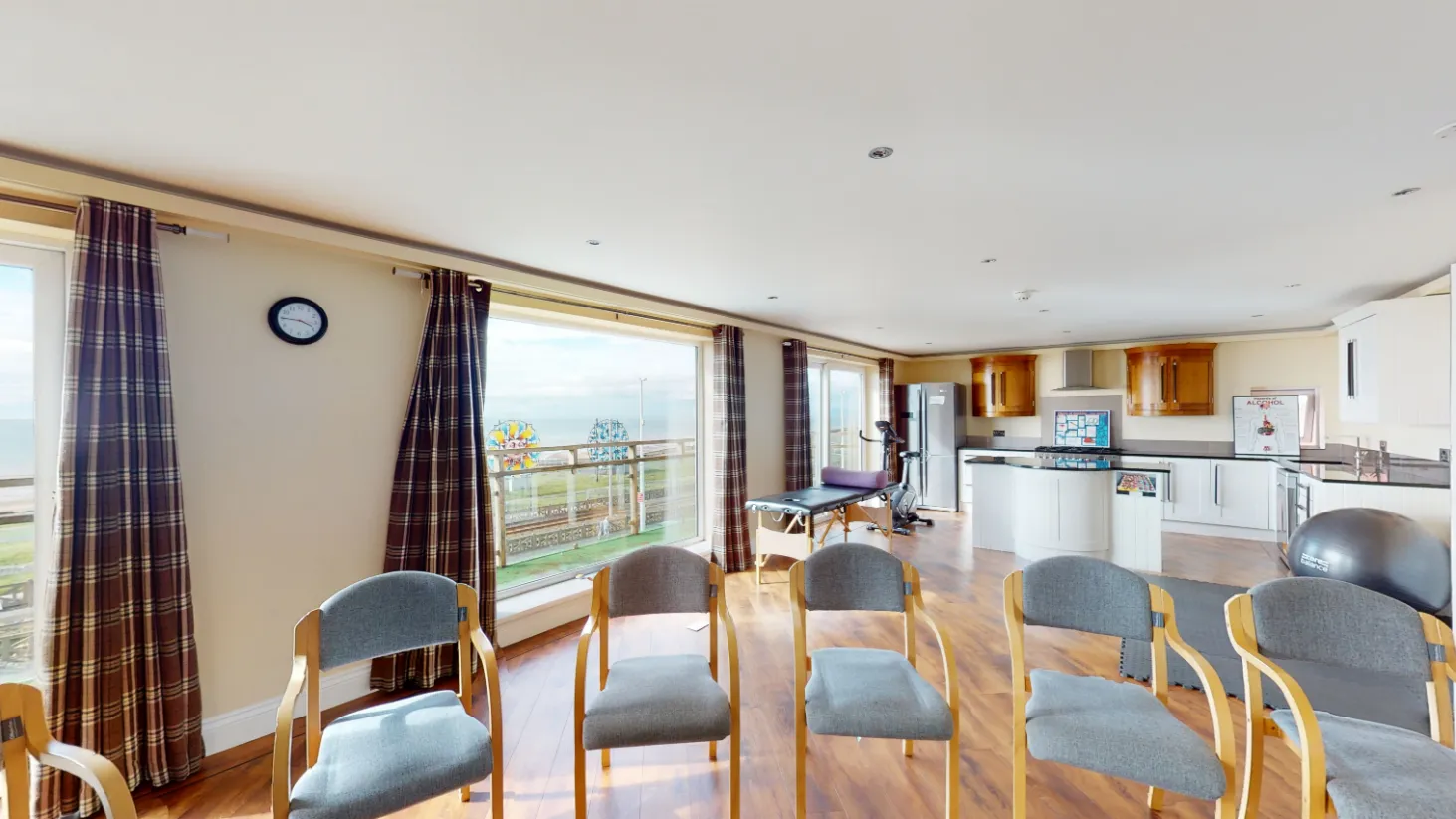
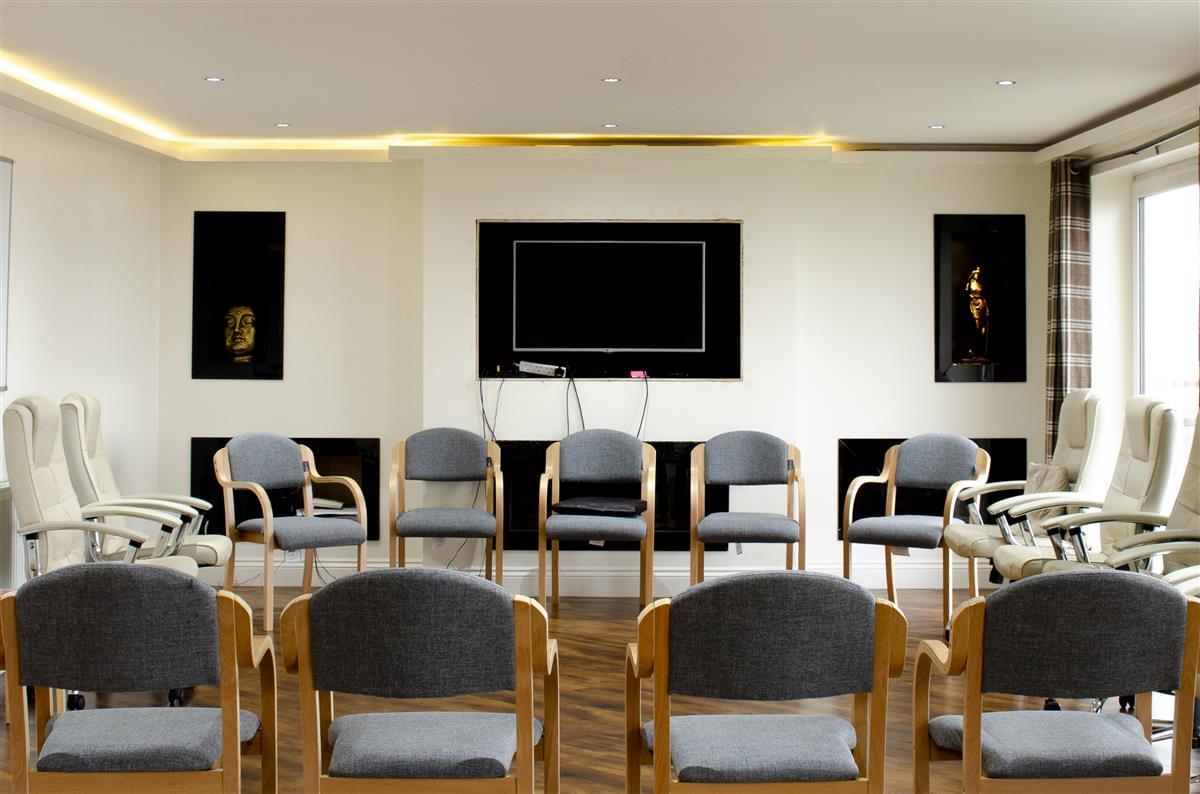

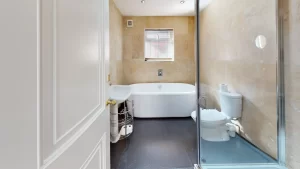
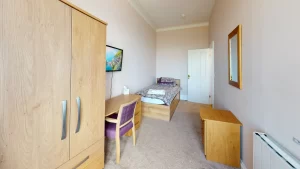
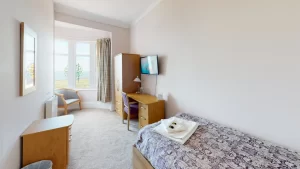
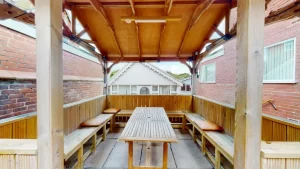
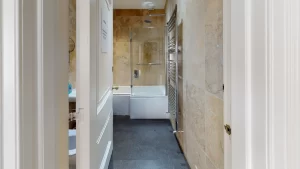
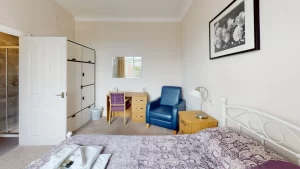
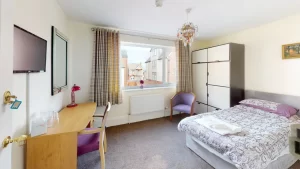

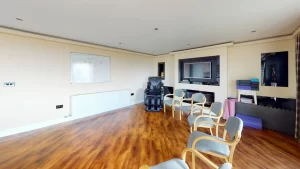
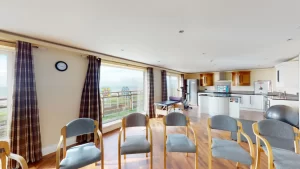
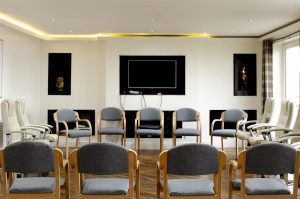
Give Us A Call
Speak to an advisor today to find out more about the rehabilitation programmes we offer at our drug and alcohol rehab centre
Areas We Cover
See below list of just some of the locations our leading alcohol rehab service covers in the United Kingdom.
- Rehab in Liverpool
- Rehab in Manchester
- Rehab in Birmingham
- Rehab in Nottingham
- Rehab in Glasgow
- Rehab in Cardiff
- Rehab in Bristol
- Rehab in Blackpool
- Rehab in Cumbria
- Rehab in Lancashire
- Rehab in Merseyside
- Rehab in Cheshire
- Rehab in Yorkshire
- Rehab in West Midlands
- Rehab in North East
- Rehab in Surrey
- Rehab in Essex
- Rehab in London
John Gillen
- Author
- Last updated: December 22, 2023
John is one UK’s leading professionals in the addiction recovery industry. Pioneering new treatment techniques such as NAD+ and ongoing research into new therapy techniques such as systematic laser therapy, John is committed to providing the very best treatment for people throughout the UK and Europe. During his extremely busy schedule, John likes to regularly update our blog section with the latest news and trends in the industry to keep visitors to our site as well informed as possible on everything related to addiction treatment.

Dr Robert Lutaaya
- Clinical Reviewer
- Last reviewed: June 15, 2023
Additional Resources
Our Therapies
- Acceptance and Commitment Therapy For Addiction
- Addiction Counselling
- Art Therapy For Addiction Recovery
- Creative Therapy
- Cognitive Behavioural Therapy (CBT)
- Drama Therapy
- Family Therapy For Addiction
- Group Therapy For Addiction
- Pabrinex Injections
- Psychoeducation For Addiction
- The 12 Steps of Addiction Recovery
Request A Callback
Enter your phone number and a member of our team will call you back to discuss your recovery.
"*" indicates required fields
Our Therapies
- Acceptance and Commitment Therapy For Addiction
- Addiction Counselling
- Art Therapy For Addiction Recovery
- Creative Therapy
- Cognitive Behavioural Therapy (CBT)
- Drama Therapy
- Family Therapy For Addiction
- Group Therapy For Addiction
- Pabrinex Injections
- Psychoeducation For Addiction
- The 12 Steps of Addiction Recovery
Request A Callback
Enter your phone number and a member of our team will call you back to discuss your recovery.
"*" indicates required fields
Our Blogs
-

How Do Alcohol Tags Work?
You might have heard of alcohol tags. They’re also known as sobriety tags. These devices are designed to monitor alcohol consumption and may be required in certain circumstances to help ensure court-ordered sobriety. The thought of being ordered to wear an alcohol ankle tag may feel intimidating or confusing, but in this article, we’ll tell
-

Our CQC Inspection: Transparency, Pride, and Our Commitment to You
This blog post is based on our CQC inspection conducted on September 28, 2021, and published November 17, 2021. We believe in transparency and are committed to sharing both our successes and our areas for improvement with everyone we serve. We’re proud to share the results of our recent Care Quality Commission (CQC) inspection with
-

Loneliness at Christmas: How to Cope
Loneliness is something that people deal with all year round. For some reason, though, loneliness can feel more intense at Christmas, a time that is supposed to be filled with celebration and joy. Last year, over 9 million adults in the UK worried about being lonely at Christmas and it is now a continuing problem
-

What Role Could AI Play in Treating Addictions?
Healthcare and medicine have always revolved around technology. Now, the drug and alcohol addiction treatment sector is no different, as advances in technology are revolutionising care in this country. Last year, the government announced pilot schemes for wearable technology, virtual reality and artificial intelligence to be used in recovery. The explosion of AI in mental
-

Is Addiction Considered a Chronic Illness?
A study by Bupa in 2025 found that over half of UK workers admitted to having struggled with some form of addiction. It is a more common problem in society than we like to admit, and many people don’t let others know they are struggling because of the stigma and language around addiction. How we
-

Life After Addiction: Rebuilding Your Career
Recovery from addiction is a hugely transformative experience and gives you the opportunity to reclaim control of your health, relationships and future. One of the biggest aspects of life after addiction is rebuilding a career. For many, returning to work or starting a new professional path can feel daunting, but it’s also an important part
-

How Are Addictions Formed?
Unfortunately, addiction, in all its forms, remains a persistent problem in this country. According to the latest government figures, 3.1% of people are struggling with drug addiction. In the most recent numbers released, it was estimated that 608,416 adults were addicted to alcohol. Though there is a growing understanding and empathy for people suffering from
-

How Do I Know if I’m an Alcoholic?
For many people, drinking is a normal part of social life. A glass of wine with dinner, a pint at the weekend, or a toast at a wedding. All seemingly harmless. But for some, drinking becomes more than just a way to unwind. It can slowly take over daily life, relationships, work, and mental health.
-

How Long Will Fentanyl Stay in Your System?
Heroin addiction is a continuing problem in society. America has, for many years, been in the grip of an opioid crisis, fuelled by the rise of fentanyl. Problems around opiates exist in the UK, with 2,551 deaths involving them, according to the latest figures. People can take fentanyl knowingly, or it is in drugs such
-

How Does Alcohol Affect Menopause?
Menopause is a normal part of ageing that all women have to deal with. Many changes happen during these years, and they can be difficult to deal with. If you are struggling with an alcohol addiction or drink casually and are worried about how alcohol affects menopause, you should educate yourself. Going through these changes